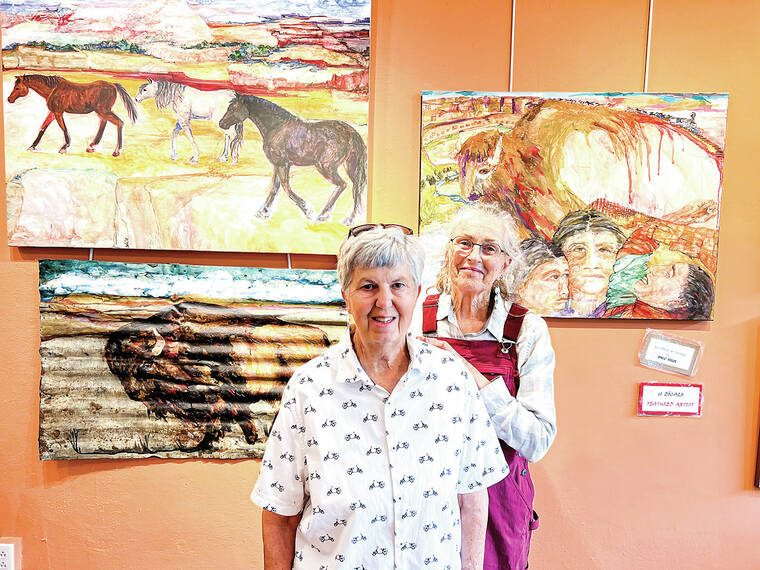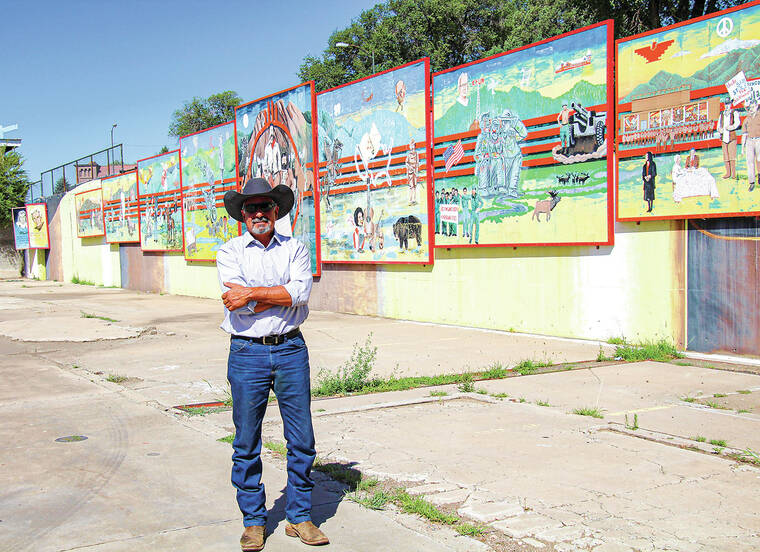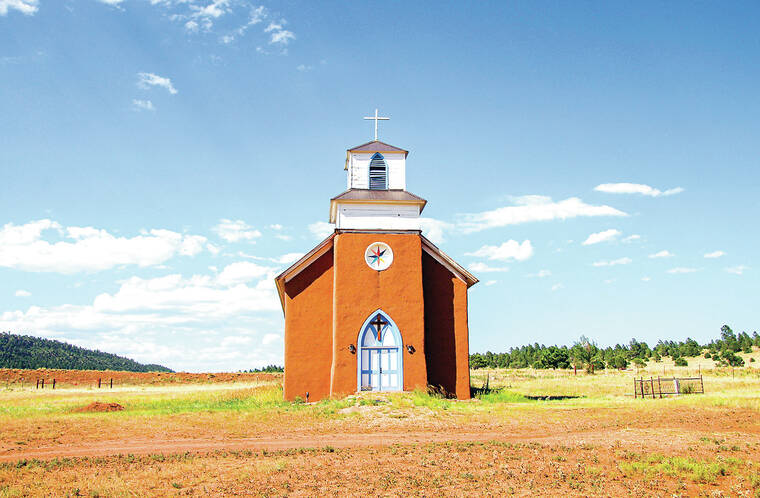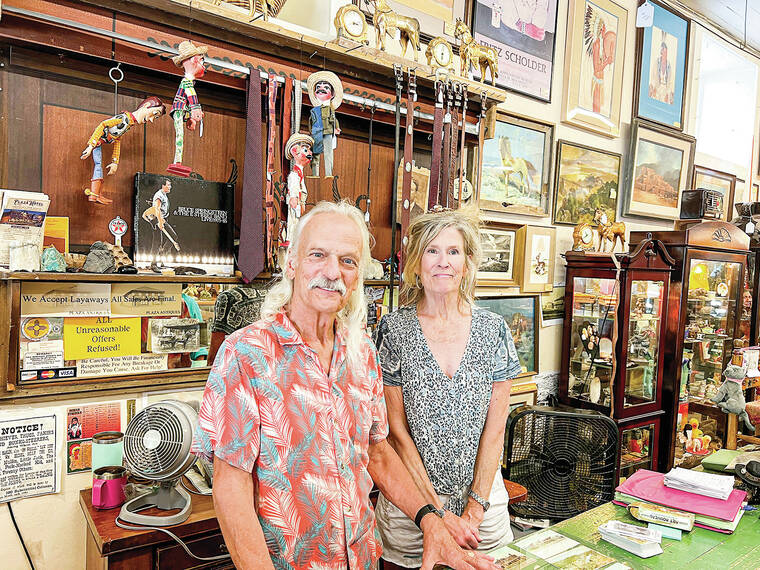This little Las Vegas claims a large presence in New Mexico’s history, landscape — and skies
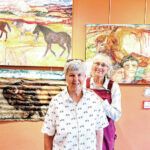
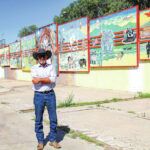
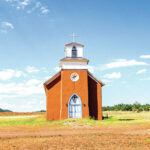
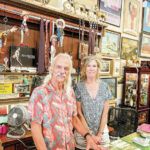
In the first chapter of Genesis, it is written, “And God said, Let there be light: and there was light.” Eons later, the Las Vegas City Council wrote, “Let there be dark: and there was dark.”
In this remote corner of New Mexico, dark sky ordinances are in place to ensure stargazers, even if they’re standing in the middle of this small town with its population of 13,000, have little light pollution to better enjoy the exquisiteness of clear nights and constellations and galaxies sparkling in the night sky like silvered flakes of glitter.
ADVERTISING
New Mexico is all about its storied light, whether from a starry night, violet sunrise or magnificent sunset. Las Vegas, perched at almost 7,000 feet in elevation, is wedged where the Great Plains and the Sangre de Cristo Mountains collide, so the luminescent landscape, a fusion of flatland and mountaintop, is light-washed and glimmering.
The light isn’t the only reason to visit Las Vegas. The dot of a town, a two-hour drive northeast of Albuquerque, is not to be confused with its same-named cousin in Nevada. The New Mexico version of Las Vegas lacks slot machines, massive buffets and neon lights, but the trade-off is small-town charm, Old West architecture and history, hometown restaurants, and art galleries and antiques shops galore.
Loving Las Vegas
The genesis of Las Vegas harkens back to the days of the legendary Santa Fe Trail, the early 19th century trail connecting Missouri with Santa Fe.
“The reason Las Vegas exists is the geography of the place,” says Elmo Baca, a Las Vegas historian. “The whole area was green and lush and had meadows.”
Baca says Las Vegas, founded by Mexican settlers in 1835, was the first town along the Santa Fe Trail where caravans stopped after crossing some 700 miles of prairie.
The town sprang up around the tree-canopied Plaza Park, the historic central square of Old Town, and its Old West-style architecture has been well preserved since the 1800s. The hood ornament of the park is the elegant Plaza Hotel, opened in 1882 with a grand attention-getting Victorian facade and that was once known as “The Belle of the Southwest” for its finery and beauty.
Remarkably, Las Vegas has more than 900 buildings listed on the New Mexico and National Register of Historic Places, with many of those located within nine historic districts. That’s an astounding number, considering its diminutive population.
Living large in Las Vegas
Las Vegas, set on the banks of the Gallinas River, is foremost a living history town. Much like Tombstone and Dodge City, it played a significant role in putting the wild in the Wild West. Among the notorious outlaws, lawmen and cowboys riding into town, and sometimes living there as well, are Billy the Kid, Jesse James, the Durango Kid, the Silva Gang, Wyatt Earp and Doc Holliday. Some 21 of Teddy Roosevelt’s Rough Riders hailed from Las Vegas. Several local museums and sites pay homage to Las Vegas’ past, including the City of Las Vegas Museum and Rough Rider Memorial Collection.
You’re likely to see stars not only in the night sky, but also a few walking around on the ground. Dozens of movies and television shows were filmed in and around Las Vegas, and the “stars” eat, sleep and shop around town. For instance, Las Vegas became the stand-in for Wyoming’s fictional Absaroka County in “Longmire,” starring Robert Taylor and Lou Diamond Phillips. Even long after “Longmire” stopped production in 2017, Las Vegas kept the front door to the “sheriff’s office” intact in the Veeder Building facing Plaza Park, with nary a day passing that someone doesn’t come along and snap a photo.
Since the days of Tom Mix silent movies, among the first filmed in Las Vegas, other filming locations are the Plaza Hotel in “No Country for Old Men” and “Easy Rider” that brought in the likes of Javier Bardem, Woody Harrelson and Peter Fonda. Other more recent productions in and around San Miguel County — Las Vegas is its county seat — are “Outer Range,” “Godless,” and “Roswell, New Mexico.” Josh Brolin of “Outer Range” is often seen moseying around town.
Languishing in Las Vegas
As you learn about the history of Las Vegas, both chronological and film, and enjoy its wide-open skies, you don’t just happen upon it. The town is fairly isolated, just as its more well-known counterparts of Santa Fe and Taos. But Santa Fe and Taos, it’s not. It’s, well, just different.
Flying into Albuquerque and driving Interstate 25 are options for getting there, but for true romantics, the best way is riding the rails with Amtrak’s Southwest Chief connecting Chicago to Los Angeles. The bluegrass group Chris Jones and the Night Drivers’ upbeat song “Riding the Chief” honors the Southwest Chief with a lovely video you can watch on YouTube. The train station, built in 1899, is an amalgamation of museum, visitor center and offices of MainStreet Las Vegas, a local organization devoted to preserving the town’s history, culture and architecture.
Before picking up maps and heading into Old Town, stop in at Rough Riders Antiques, just steps from the train station, for steals in antiques and handmade turquoise jewelry and for a respite at Dichos Coffee House for coffee and fresh-baked pastries.
Spend a morning on a walking tour through one of the historic districts, or if you visit Thursday through Saturday, hop aboard a trolley with Number 11 Trolley Tours that takes you past gemstones such as the Carnegie Library, a host of WPA murals, adobes, Victorian homes and Lion Park with its larger-than-life lion statue.
For the afternoon, take off to see more fabulous sights, among them Las Vegas National Wildlife Refuge for an array of bird life, Montezuma Hot Springs with its warm and mineral-charged pools or the Dwan Light Sanctuary, a soothing, peaceful place awash with ethereal, prismed light, at United World College in nearby Montezuma. The landscape around Las Vegas is punctuated with picturesque old mills, abandoned churches and stands of cottonwood.
A must-do is see a first-run movie at Baca’s Indigo Theater, with its bright indigo-hued facade. When the movie is over, sit and chat with the amiable Baca, who’ll happily fill you in on Wild West and cowboy culture. If you’re still in the mood for movies, Fort Union Drive-in is the only drive-in left in New Mexico, with a single admission price per carload.
Yet another must-do is check out Rock Ulibarri’s 11-panel “The People’s History of El Norte” mural that’s a chronological, and colorful, history of the town painted by some 300 high school students.
Take advantage of the patchwork quilt of shops scattered in Old Town, among them the Paper Trail for local gifts and books or Weave and Gather for original woodwork or textiles. Pop into Plaza Antiques for full-blown sensory overload with world-class antiques or Fat Crow Press, Tito’s Gallery, Corner Art Gallery or El Zocalo Cooperative Art Gallery chock full of local art.
Eating and sleeping
Las Vegas is all about the good eats. Stella’s Café, where owners Frank and Jan Beurskens may personally greet you, is cozy, comfortable and smells divinely delicious. They also own the Rock House, a beautiful stone cottage Airbnb and above their restaurant another light-filled Airbnb with views of historic Bridge Street.
While I was dining on Stella’s scrumptious green chile chicken melt — the popular restaurant serves breakfast, lunch and dinner — Frank was chatting with Michael O’Keefe, who was visiting from Cork, Ireland, and appropriately wearing an emerald-green shirt. It was his second visit to Las Vegas.
“It’s almost like stepping back in time,” he says a lilting Irish accent. “Las Vegas is for those who have an affinity for old buildings. It’s just very, very appealing. I think this is a hidden gem.”
Expect New Mexico cuisine at local favorite Charlie’s Spic and Span Bakery and Café. That means red and green chiles on your plate in some form or another, with the portions big and food exceptional. Also try the fun Dick’s Pub and Restaurant, with a choice of dining in its cozy downstairs or sun-splashed upstairs loft. Dick’s is all about creative comfort food like the Mother Clucker, a yummy fried chicken sandwich, or chipotle salmon.
Wander over to the 16-room historic, fabulously decorated Castaneda Hotel for an overnight stay or dinner and drinks at Bar Castaneda and Kin Castaneda. The Castaneda, next to the railway station and once a Fred Harvey hotel, opened in 1898 and closed in 1948. After being shuttered for seven decades it, was renovated and reopened in 2019 by husband-and-wife entrepreneurs Allan Affeldt and Tina Mion, who also own the Plaza Hotel. Affeldt affectionately terms Las Vegas “the architectural jewel of the Southwest.”
An art studio begat a food truck, which in turn begat The Skillet, Isaac and Shawna Sandoval’s unique approach to Vegas-style dining. The menu of the art-filled restaurant – in the past a tannery, wool warehouse and bowling alley – is trendy with specialty cocktails paired with distinctive dishes, among them green chile fries and orange chicken burrito. The Skillet, along with Buffalo Hall, offer the best options for music and nightlife.
The menu of Sara Jo Matthews’ Prairie Hill Café is a farm-to-table epicurean love letter to Las Vegas. The café, inside the Plaza Hotel, offers dishes made with beef and pork grown on Matthews’ family farm.
Breakfast runs the gamut from burritos to lavender French toast, but dinner absolutely delights with sea and land creatures, including dry-aged petite filet medallions deliciously basted in butter and garlic.

